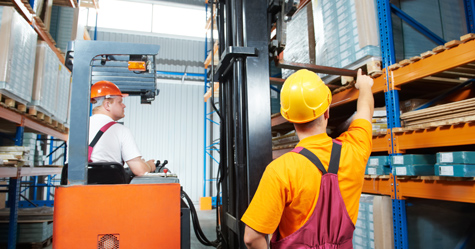
Back in the day, which around these parts is prior to 1999, forklift operator training typically amounted to little more than a wish and a prayer. As I recall when I first got behind the wheel of a forklift in 1986, the breadth and depth of my training consisted of my supervisor pointing out the steering wheel, gas and brake pedal, mast controls and finally imparting some of his wisdom by barking, “Hurry up, and don’t hit anything!”
Thankfully, times have changed since then. Most of the forklift operations I visit today are reasonably up on their operator training, at least to the point where some kind of consistent program is followed. However, all is not well in operator training land. It seems that there is still a lack of understanding around upgrade and refresher training.
I think that these issues stem from the mistaken belief on behalf of forklift users that the successful completion of operator training marks the end of…something? The fact of the matter is that the successful completion of training marks the end of training, nothing more. In fact, at that point the job of enforcing and maintaining the training has only begun!
With respect to maintaining operator training, some of the most frequently neglected aspects are related to upgrade training and refresher training. Both of which are mandatory in the United Stated and many parts of Canada. Upgrade training is required when:
- The operator is assigned to use a forklift that is modified or significantly different than the equipment normally used. Translation: Just because an operator is trained and qualified to run a narrow aisle reach truck it does not mean they are also qualified to use a counterbalanced warehouse machine equipped with a squeeze clamp attachment!
- The job/tasks performed by the operator change. Translation: Operators must not only be able to demonstrate safe and competent driving skills with a forklift but the ability to perform the job they are assigned to with the equipment. If the job changes, more training is needed.
- The environment in which the operator works changes. Translation: The conditions encountered while working in the warehouse with palletized loads and hard level roadways are quite different than those found out in the yard where loose loads of raw materials are handled on loose gravel roadways.
Refresher training is required when:
- There is an accident or incident caused primarily by the actions (or inactions) of the operator. Translation: The fact that an operator is involved in either of these is a dead give-away that he/she needs a refresher!
- The operator is observed demonstrating poor driving habits and/or skills. Translation: You have just watched an operator drive in reverse for 10 seconds without looking behind and then pick up a load and drive forward with the load blocking her/his view. Time for some more training!
- An evaluation determines additional training is required. The results of a written and/or practical test indicate that the operator is lacking in certain areas of his/her knowledge and/or skills.
In addition to the above requirements, an evaluation of an operator’s knowledge and skill is required by law at least every three years (2 years in British Columbia, Canada) regardless of his or her operational track record.
No matter where you are, the pursuit of safety is ongoing. As long as hazards exist, whether they are anticipated and identified or unforeseen, the need to seek them out and guard against them goes on. It is sort of like being the coach of a sports team or a parent; the time in which your constant efforts are no longer required will simply never come.
Rob Vetter
Director of Training
IVES Training Group
Did you enjoy this article? Sign up for our newsletter to receive more like this!